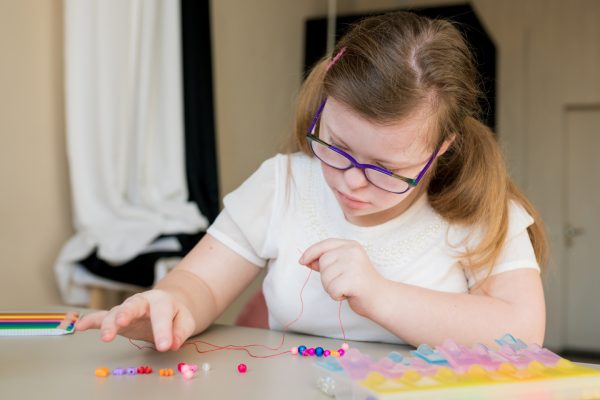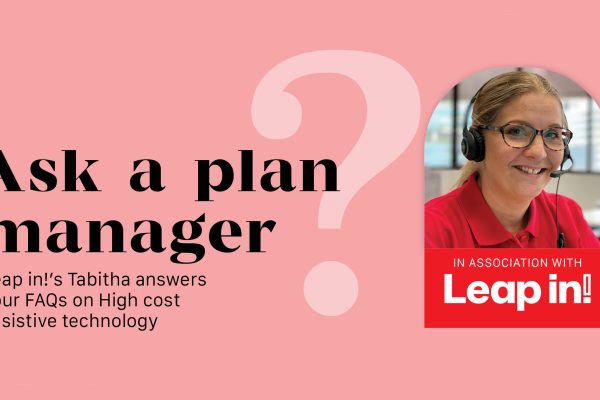
Your child’s education: families and schools in partnership
Every child has the right to participate, learn and achieve at school, and the best outcomes are possible when families and schools work together.
Working in partnership with the staff at your child’s school is just like building any other relationship; it’s about good communication, mutual respect and empathy. We spoke to the Association for Children with a Disability (ACD) about how you can work together with school to help your child.
Building relationships
When you have a strong and respectful relationship with your child’s school and teachers, it’s more likely they will listen and take on board any information you provide about your child. This will inform and guide them to provide the right support for your child to get the most out of their education.
It’s a good idea if you start developing good communication and healthy relationships with teachers, other parents and students early in their school life.
Think about which school staff can support your child and build your relationships with them. Get to know your child’s classroom teacher or homeroom teacher at secondary school, the year level coordinator, the integration or welfare coordinator and others who can help your child.
Check in with them regularly, be supportive of their work, share information and ideas, get involved at school if you can, and use every opportunity to stay in touch. This might include using a communication book, emails, school events and assemblies. It will also include formal meetings each term (called Student Support Group meetings in Victoria), where you will meet with your child’s teacher, the Principal and specialists if applicable. These meetings give you the chance to work with the school to make decisions, check progress, address challenges and work on solutions to support your child’s learning.
Developing a positive partnership with your child’s teacher
- Arrange a time to meet at the beginning of the year
- Decide together on the best way to communicate
- Develop a child profile to help the teacher aides get to know your child
- Keep a positive attitude
Being part of the school community
Families are important and valued members of the school community. When children and young people feel part of the school community they learn better. As well as learning new skills, a positive school experience also means being included, making friends and having a sense of belonging.
As mentioned above, there are many ways to get involved at your child’s school. Not all parents are able to help out, but for those who can, it’s another way to build a positive relationship with the school. If you’re unable to regularly be at the school, you can try to follow the school on social media and engage with their posts, reply to email communications, and become a regular visitor of the school’s website.
Reasonable adjustments
Schools have legal obligations to support your child’s access and participation at school by making what’s called ‘reasonable adjustments’.
This can include making changes to the curriculum and programs, teaching approaches, the classroom, or accessing support services. For an adjustment to be reasonable, it has to be fair to everyone involved.
Adjustments made to support students with disability can also be helpful to other students as well. Professional development for school staff can help to build capacity across the school, to better meet the needs of all students.
Schools can make many different kinds of adjustments to meet your child’s needs, in many different areas. For example, adjustments can be aimed at supporting your child’s:
• academic progress
• personal or medical care needs
• participation in school activities
• communication
• physical development and therapy
• social learning and inclusion
If an activity, facility, service or program cannot be adjusted or made accessible or suitable for your child, the school is legally required to offer an alternative comparable to what is offered to students without disability.
New approaches to supporting students with diverse learning needs are being developed all the time. Your input and ideas are also of great value, as you know your child best. You should feel confident to offer them through the Student Support Group and in communication with your child’s teachers.
Raising concerns and advocating for your child
Most concerns can be resolved by working together with the school towards the best outcome for your child. You have the right to raise a concern if there is a situation at school that you want changed or improved. It could be about something that just affects your child, or something that affects other students as well. You might offer ideas for improvement or just want to bring the issue to the school’s attention.
Raising a concern is different from making a complaint. A complaint is a more formal step you can take if you are not satisfied with how your concerns have been addressed.
Positive advocacy
- Be clear about what you want to achieve
- Be aware of your child’s rights
- Be prepared to compromise
- Try to appreciate everyone’s perspective
- Avoid ‘blaming’ and negative language
How can I raise a concern with school?
Following the school’s policy and procedures for raising a concern will increase your chance of success. It will also help if you need to take your concern to the next level and make a complaint.
Planning your approach will help to get the best outcome for your child:
Gather and write down all the facts to clarify if your concern is about:
– a particular issue or incident
– an aspect of your child’s program
– one or more of the school’s practices or policies
– the conduct or performance of a staff member, or – a combination of these.
- Think about how you will raise your concern. For example, this could be in person, by email or a phone call. Concerns can also be raised through formal meetings that occur once a term.
- Focus on what would be the best outcome for your child. For example, it could be acknowledgement, a change to school policy or training for school staff.
It’s important to raise your concern with the person who can help to resolve the issue:
- For concerns about something that happened in the classroom – contact the teacher.
- For concerns about the school – contact the Principal.
You might raise an issue informally first, but you may then need to make an appointment to discuss it further. You have the right to have an advocate or support person at any meeting with the school, and to ask for an interpreter if you need one. You can get advocacy support from friends, family, other parents or professional advocates.
Tips for raising a concern
- Communicate clearly. If you raise a concern with the aim of resolving it together, you are more likely to get a positive response.
- Get your child’s input. Your child is often a crucial source of information about any problem or concern at school.
- Plan how to get your message across. Write down what you want to achieve and the points you wish to cover. Discussions often take longer than planned, so consider numbering your points to make sure you cover the most important ones.
- You are more likely to succeed if you have a good understanding of your child’s rights, supports for students with disability and education planning.
- Set a realistic but positive goal of what you want to achieve by raising your concern. Clarify this in your own mind and be clear about it in communications with the school.
- Offer positive feedback when you can. People are often more open to making changes when the good things they are doing are recognised. Acknowledge what is working well and let the school know that you appreciate their efforts.
- Try not to get discouraged. Your role is important and you can make a real difference. Speaking up for your child can also be very empowering.
Finally, think about your own needs too. We know that it can be daunting when advocating for your child and it’s easy to feel emotional and overwhelmed. It’s important to take some time for yourself so that you can continue to be the best support for your child.
The Association for Children with a Disability (ACD) advocates for children with a disability and their families in Victoria. For more info visit acd.org.au







